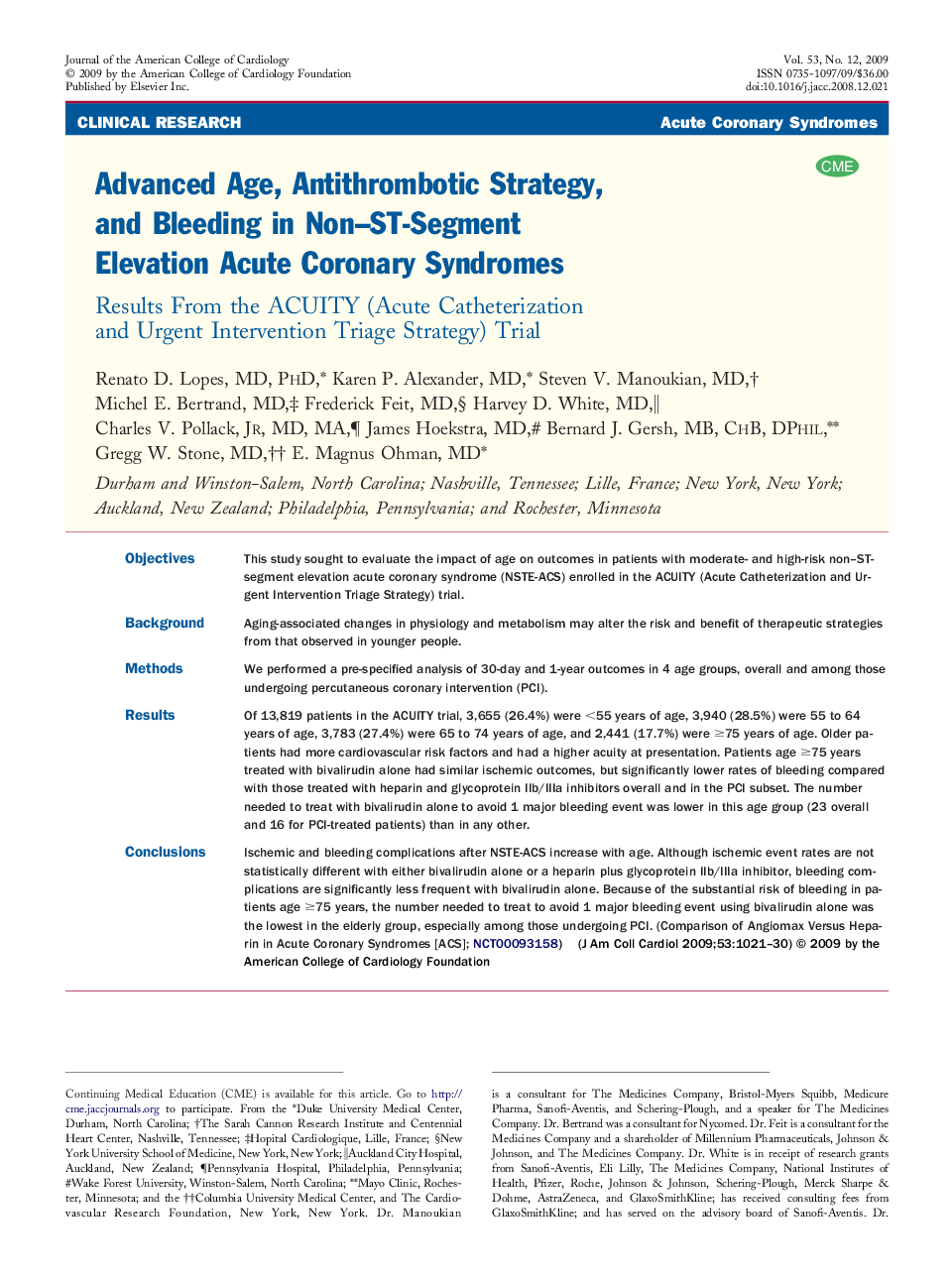| Article ID | Journal | Published Year | Pages | File Type |
|---|---|---|---|---|
| 2952817 | Journal of the American College of Cardiology | 2009 | 10 Pages |
ObjectivesThis study sought to evaluate the impact of age on outcomes in patients with moderate- and high-risk non–ST-segment elevation acute coronary syndrome (NSTE-ACS) enrolled in the ACUITY (Acute Catheterization and Urgent Intervention Triage Strategy) trial.BackgroundAging-associated changes in physiology and metabolism may alter the risk and benefit of therapeutic strategies from that observed in younger people.MethodsWe performed a pre-specified analysis of 30-day and 1-year outcomes in 4 age groups, overall and among those undergoing percutaneous coronary intervention (PCI).ResultsOf 13,819 patients in the ACUITY trial, 3,655 (26.4%) were <55 years of age, 3,940 (28.5%) were 55 to 64 years of age, 3,783 (27.4%) were 65 to 74 years of age, and 2,441 (17.7%) were ≥75 years of age. Older patients had more cardiovascular risk factors and had a higher acuity at presentation. Patients age ≥75 years treated with bivalirudin alone had similar ischemic outcomes, but significantly lower rates of bleeding compared with those treated with heparin and glycoprotein IIb/IIIa inhibitors overall and in the PCI subset. The number needed to treat with bivalirudin alone to avoid 1 major bleeding event was lower in this age group (23 overall and 16 for PCI-treated patients) than in any other.ConclusionsIschemic and bleeding complications after NSTE-ACS increase with age. Although ischemic event rates are not statistically different with either bivalirudin alone or a heparin plus glycoprotein IIb/IIIa inhibitor, bleeding complications are significantly less frequent with bivalirudin alone. Because of the substantial risk of bleeding in patients age ≥75 years, the number needed to treat to avoid 1 major bleeding event using bivalirudin alone was the lowest in the elderly group, especially among those undergoing PCI. (Comparison of Angiomax Versus Heparin in Acute Coronary Syndromes [ACS]; NCT00093158)
